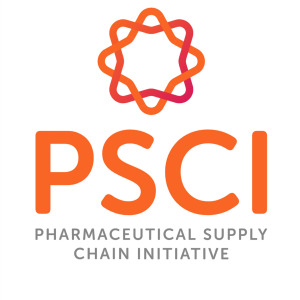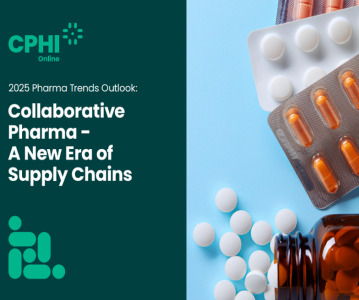Leveraging the power of the pharmaceutical industry for improved human rights outcomes
.png)
A quarterly series blog posts about responsible supply chain management from the PSCI Chair, Vicki Stone-Bjarup
10 December is Human Rights Day, marking the day the Universal Declaration of Human Rights was adopted by the United Nations General Assembly 75 years ago. Since then, many international instruments have been adopted by governments worldwide, progressively expanding the scope of human rights.
What does this mean for pharmaceutical companies? When thinking about human rights in the context of the pharma industry, the right to health immediately comes to mind. But the sector does have an important impact on a broader range of human rights – first and foremost, labour rights. At the Pharmaceutical Supply Chain Initiative (PSCI), we are working to ensure that any human rights risks are mitigated and turned into positive outcomes down the supply chain.
To do so, the PSCI has committed to support all its members in implementing the United Nations’ Guiding Principles on Business and Human Rights (UNGPs). They are based on the International Bill of Human Rights and the ILO Core Labour Rights Conventions and provide guidance for companies to prevent, address, and remedy human rights abuses committed in business operations. We recognise that all companies have the responsibility to respect human rights according to the UNGPs.
Setting direct expectations on the pharmaceutical industry, the PSCI has adopted Principles for Responsible Supply Chain Management specifically covering human rights, focusing on six issues that are most common in supply chains: (1) Freely Chosen Employment, (2) Child Labour and Young Workers, (3) Non-Discrimination, (4) Fair Treatment, (5) Wages, Benefits, and Working Hours, and (6) Freedom of Association. As our member companies are committed to respect human rights, the PSCI expects that suppliers, in turn, make the same commitment and treat all people who may be impacted by their operations with dignity and respect.
To support pharmaceutical companies and suppliers in their implementation of the Principles, the PSCI has developed a maturity assessment against the six common Human Rights & Labour issues and seven further human rights topic areas. Based on our Maturity Model, companies can identify if their program is Starting, Developing, Implementing or Leading. We also provide a Learning Plan mapping all the guidance, tools, and resources the PSCI has available to enable pharmaceutical supply chains to improve.
To ensure the PSCI Learning Plan is up to date with the latest developments in the field, we’re constantly publishing new resources, delivering training sessions, and organising conferences for suppliers around the world. Most recently, the PSCI has published a series of briefings on eight human rights notions from the PSCI Principles, to help suppliers understand the relevance of fundamental rights to their business. We have also created a due diligence process for managing the procurement of high-risk raw materials. Finally, we delivered sessions on responsible procurement and labour codes at our annual conferences in India and China, attended by hundreds of suppliers from the region. Looking ahead, we’ll be doing a deep dive into responsible buying and human rights due diligence at our upcoming global conference.
This year, to mark Human Rights Day, the PSCI has published a video reiterating our commitment to driving good human rights practices in pharmaceutical supply chains and outlining the resources we have available to help make it happen across the industry.
Together with our members, the PSCI understands that society and business are best served by responsible business behaviours and practices. With our training materials, conferences, and tools, we aim not only to ensure the upholding of our Principles, but also to support all our members in implementing the United Nations’ Guiding Principles on Business and Human Rights in their supply chain and improving their human rights impacts around the world.
The PSCI: Creating a better supply chain in the pharmaceutical and healthcare industry.
The Pharmaceutical Supply Chain Initiative (PSCI) is the top membership body driving excellence in safety, environmental and social outcomes across the global pharma & healthcare supply chain. We believe that collectively PSCI members can share knowledge and expertise, across our industry, to drive complex, global change more effectively than any one organisation alone. We have joined forces to promote responsible supply chain management and better business conditions across the industry.

Twitter: @PSCInitiative
LinkedIn: PSCI – Pharmaceutical Supply Chain Initiative
Find out how you can help at CPHI Barcelona
Can your business make the world a better place? Yes, and in more ways than you might think. At CPHI Barcelona, you'll meet experts who understand the complex ways in which the pharma industry impacts people's lives all over the world.
Your CPHI Barcelona pass gives you access to all conference sessions, conference sessions, including the Creating a Circular Economy conference track, as well as the chance to connect in-person with the global pharma supply chain from 24-26 October, at Fira Barcelona Gran Via. Browse the agenda and secure your pass today!
Related News
-
News How GLP-1 agonists are reshaping drug delivery innovations
GLP-1 agonist drug products like Ozempic, Wegovy, and Mounjaro have taken the healthcare industry by storm in recent years. Originally conceived as treatment for Type 2 diabetes, the weight-loss effects of these products have taken on unprecedented int... -
News NextPharma Achieves Carbon Neutrality for Scope 1 and 2 Emissions
NextPharma has confirmed that it will achieve carbon neutrality for its Scope 1 and Scope 2 emissions starting January 1, 2025, marking a significant milestone in its sustainability journey. -
News 2025 Pharma Trends Outlook: Collaborative Pharma – A New Era of Supply Chains
A new year, a new Pharma Trends Outlook report! The 2025 Pharma Trends Outlook report examines key changes expected in the pharmaceutical industry for the coming year, particularly in regards to the supply chain. -
News Closing 2024 with Editors' picks of top articles from the past year
Coming to the end of 2024 and it’s certainly been a busy year, for CPHI and for the rest of the pharmaceutical and healthcare industry. Topics of conversation throughout the last 12 months have been varied, touching on the technical, to the polit... -
News SCHOTT Pharma’s sustainable journey with CPHI
Sustainability is of paramount importance in the pharmaceutical industry. See how a recent partnership between CPHI and SCHOTT Pharma has helped to highlight and accelerate their sustainability journey to reach global goals. -
News Day in the Life of a Green Chief Financial Officer
Our latest look into the daily lives of the people behind the pharma community brings us to meet Juan Jose Piedra Galan, Global Financial Planning & Analysis Manager for Galderma, otherwise known as 'The Green CFO'. -
News CPHI Milan 2024 - From the Floor
Milan and CPHI welcome you to 2024 CPHI Milan! As we celebrate the 35th edition of our flagship CPHI show, editors Vivian Xie and Lucy Chard bring you the latest from the show floor, conference sessions, and innovative solutions from all exhibitors, at... -
News CPHI Podcast Series: analysing supplier audits with the PSCI
This episode of the CPHI Podcast Series, hosted by Digital Editor Lucy Chard, goes through the results from the recent audits from the PSCI conducted on suppliers across the pharmaceutical industry, looking into ESG outcomes.
Position your company at the heart of the global Pharma industry with a CPHI Online membership
-
Your products and solutions visible to thousands of visitors within the largest Pharma marketplace
-
Generate high-quality, engaged leads for your business, all year round
-
Promote your business as the industry’s thought-leader by hosting your reports, brochures and videos within your profile
-
Your company’s profile boosted at all participating CPHI events
-
An easy-to-use platform with a detailed dashboard showing your leads and performance








